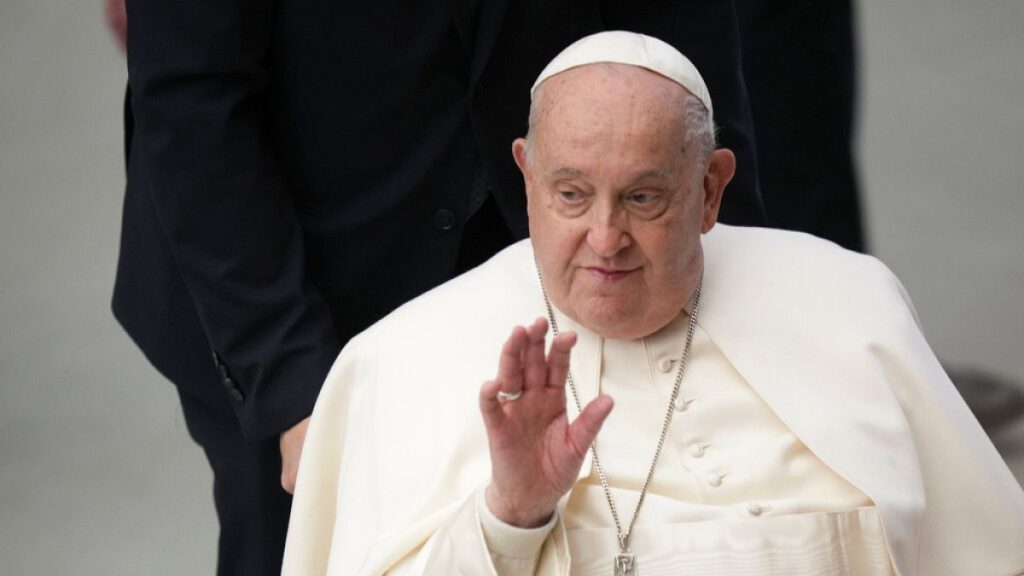Pope Francis’s recent meeting with Maltese President Myriam Spiteri Debono exemplified the intersection of diplomacy, humanitarianism, and technological innovation. The meeting, held within the Apostolic Palace, covered a range of pressing global issues, demonstrating the Vatican’s continued engagement with international affairs. Discussions touched upon the multifaceted challenges of migration, a topic of significant concern for both Malta and the Holy See, given their geographical locations and humanitarian missions. The ongoing conflict between Israel and Palestine, a persistent source of instability in the Middle East, also featured prominently in the dialogue, reflecting the Vatican’s long-standing commitment to peace in the region. Furthermore, the devastating war between Russia and Ukraine, with its immense human cost and geopolitical ramifications, was addressed, underscoring the papacy’s persistent calls for peace and dialogue. This focus on critical global issues highlights the Vatican’s role as a moral compass and advocate for peace and justice on the world stage.
Beyond the diplomatic discussions, the exchange of gifts between Pope Francis and President Spiteri Debono highlighted a unique blend of symbolic and practical gestures. The president presented the Pope with a Tecar therapy device, a sophisticated piece of medical equipment designed for physical rehabilitation. This gift, intended for use in the Vatican’s ambulatory for the Dicastery for the Service of Charity, represents a tangible contribution to the Pope’s ongoing efforts to alleviate suffering among vulnerable populations. The Tecar therapy device, standing for Capacitative and Resistive Energy Transfer, utilizes medium-frequency electric currents to stimulate tissue healing and pain relief. This technology will be instrumental in providing much-needed physiotherapy and rehabilitation services to homeless individuals, who often experience musculoskeletal pain and inflammation due to the harsh realities of their living conditions. This thoughtful gift reflects a shared commitment to addressing the physical needs of the marginalized and underscores the importance of providing access to quality healthcare for all.
The Tecar therapy device, although a relatively recent innovation in the field of physical therapy, holds considerable promise for addressing a range of musculoskeletal conditions. It operates on the principle of generating heat within the body’s tissues through the application of high-frequency electromagnetic energy. This generated heat can stimulate blood circulation, reduce inflammation, and promote tissue repair. By selectively targeting specific areas of the body, Tecar therapy can offer a non-invasive and effective means of alleviating pain and restoring function. It is particularly beneficial for conditions such as tendinitis, bursitis, muscle strains, and osteoarthritis, which are often prevalent among homeless populations due to exposure to the elements, physical exertion, and limited access to healthcare. The device’s portability and ease of use make it particularly well-suited for use in the ambulatory setting, allowing healthcare providers to offer effective treatments to those most in need.
The inclusion of the Tecar therapy device within the Vatican’s ambulatory for the homeless represents a significant step towards expanding access to advanced medical technologies for vulnerable populations. The Vatican’s Dicastery for the Service of Charity, responsible for coordinating and implementing the Pope’s charitable initiatives, plays a vital role in providing essential services to those living on the margins of society. By incorporating innovative technologies like Tecar therapy, the Dicastery can enhance its capacity to address the multifaceted needs of the homeless population, which extend beyond basic necessities like food and shelter to encompass physical and mental well-being. The use of this advanced technology aligns with the Vatican’s unwavering commitment to providing comprehensive care and promoting human dignity for all individuals, regardless of their circumstances.
In addition to the Tecar therapy device, President Spiteri Debono presented Pope Francis with a basket of traditional Maltese products, a gesture symbolizing the cultural exchange and warm relations between the two states. This gift, imbued with the flavors and traditions of Malta, serves as a reminder of the interconnectedness of people and cultures across geographical boundaries. In reciprocation, Pope Francis presented the Maltese president with a collection of symbolic gifts, including a ceramic sculpture, an illustrated book showcasing the Apostolic Palace, a compilation of papal documents, and a personally signed copy of his annual Message for Peace. These gifts, imbued with spiritual and historical significance, represent the Vatican’s enduring commitment to peace, dialogue, and interfaith understanding. The exchange of gifts, beyond their material value, underscores the mutual respect and shared values that underpin the relationship between the Holy See and Malta.
The meeting between Pope Francis and President Spiteri Debono, characterized by its focus on global challenges, humanitarian initiatives, and symbolic gestures, exemplifies the multifaceted nature of Vatican diplomacy. The discussions on migration, the Israeli-Palestinian conflict, and the war in Ukraine reflect the Pope’s deep concern for global peace and justice. The gift of the Tecar therapy device, intended to provide much-needed care to homeless individuals, demonstrates the Vatican’s unwavering commitment to serving the most vulnerable members of society. The exchange of gifts, both symbolic and practical, further solidifies the bond between the Holy See and Malta, highlighting their shared values and commitment to addressing pressing global issues. This meeting serves as a testament to the power of dialogue, diplomacy, and compassion in fostering understanding and promoting positive change in the world.














